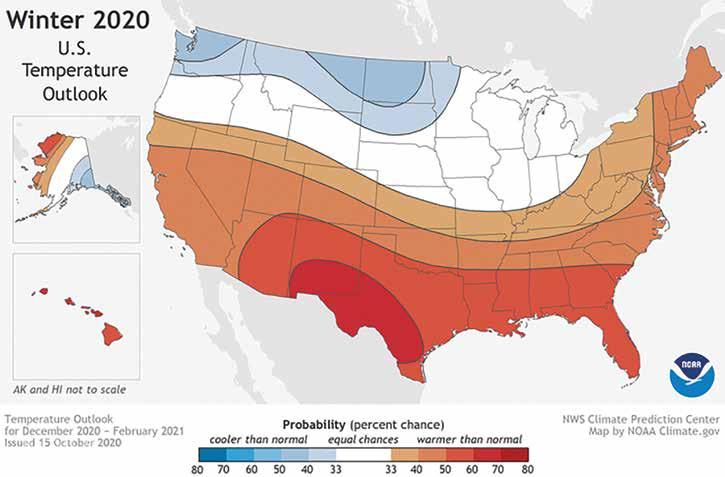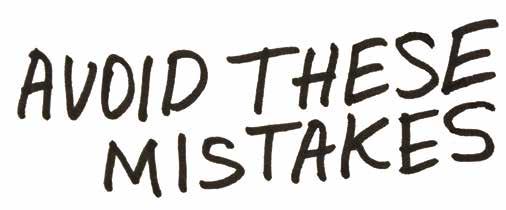
6 minute read
What to Do If You Customers Won’t Wear a Mask
What Do I Do if My Customers Won’t Wear a Mask? Learn more about enforcing face masks for customers, and relevant legal information
Dan Marzullo
Advertisement
FAQs on face masks policies for small businesses
Small business owners around the country are taking precautions, following guidelines, and doing everything they can to keep their workers and customers safe.
But what happens if your customer refuses to wear a mask? Whether or not you can require face masks forcustomers depends on individual state and local orders.
However, bear in mind that both the Occupational Safety and Health Administration (OSHA) and the CDC strongly recommend them — and requiring face mask usage is becoming more common in areas around the country.
Under the OSHA respiratory protection standard, employers must also supply required personal protective equipment materials (including face masks) if the business requires it.
Can I enforce a mask policy for customers?
You certainly don’t have any HR files on who enters your place of business, but you can require face masks of your customers. Make sure you have clear signage that details your mask policy for customers on the outside of your business as well as the interior.
Small businesses do have the authority to ask customers to leave if they ignore the mask requirement. In most cases, customers will leave without causing a scene, but there are some isolated incidents in which customers have demanded to stay — mask free. Every situation is unique, and it’s up to the manager or business owner to decide whether to involve local authorities in these cases.
Can I get sued if I enforce a mask policy in my business?
We’re in unprecedented waters so there’s no clear answer. Most attorneys are saying that it’s unlikely for lawsuits to go anywhere, but it is possible. A lot of people have compared the mask policy to the no shoes, no shirt, no service policy that’s common in establishments. New York Governor Andrew Cuomo recently said: “You don’t have a right to walk in a store and cause all the other patrons to run out because you’re not wearing a mask.”
Your rights as a business owner are dictated somewhat by state and local ordinances, so it’s always a good idea to have an HR representative on your side who’s aware of the ever-evolving laws around reopening during COVID-19. Ultimately, businesses are usually free to tell their customers that they must wear a mask to get and stay inside.
Refusing entry or service is a right businesses have had since the beginning of commerce in the United States, and some experts are likening the mask policy to not allowing smoking indoors. One customer’s “right” cannot put at risk the health of every other customer and employee in the store.
Of course, the ADA also has laws in place for customers with disabilities. Someone who physically cannot wear a mask does have the right to sue a business that turns them away. That’s why many businesses have a mask exemption for young children and those whose health are at risk when wearing a mask. But you cannot necessarily tell if a person is “mask exempt.” There are also some people who falsely claim they should be exempt simply because they don’t want to wear a mask.
for there to be a legal precedence. Right now, nobody knows exactly what would happen if someone sues a business for discrimination based on their mask policy. The potential damages are unclear. If your small business has a customer who refuses to wear a mask, the best recourse is to call local authorities — and perhaps work with your local government to help buttress mask policies to protect small businesses.
This issue comes down to the fact that while small businesses are perfectly in their right to require employees and customers to wear masks, actually enforcing that policy is a lot tougher. A common misunderstanding around the mask policy is that it violates First Amendment rights.
However, constitutional lawyers are quick to point out that businesses are on private property and have been throughout recent history. First Amendment rights do not apply to others’ personal property — which is why you also don’t have the “freedom” to patronize stores completely nude (well, outside of nude resorts). On private property, including business property, violation of the rules is a violation of the business’ rights.
This article is a courtesy of Workest, powered by Zenefits (zenefits.com) Dan Marzullo produces strategic marketing content for startups, digital agencies, and established brands. He helps organizations tell stories, achieve online presence, and builds brands that communicate with their customers.


Odor Complaints, Gas Leaks, and Service Interruptions Safety Meeting
A customer complaint about a gas odor requires prompt attention. A propane leak can exist for a long time without detection. To ensure against potential hazards or downtime, respond to propane odor reports swiftly, and follow your company policy for resolution.

FIELDING ODOR REPORTS:
3 Use your company’s policies and procedures when taking a customer odor/gas leak call. 3 This will help you gather the information you need to determine the source and location of a possible leak, and help you give appropriate instructions to the customer. 3 If the propane odor is detected inside a building, instruct the customer to immediately put out all smoking materials and other open flames; do not operate lights, appliances, telephones, or cell phones; shut off the gas if it is safe to do so; and leave the area.
AT THE CUSTOMER SITE:
The odor of propane suggests its presence, but cannot signify its concentration. Since you have no way of knowing the potential risk, always follow these precautions: 3 Treat all leak reports as propane gas, until proven otherwise. 3 Keep the area clear of open flames and electric sparks; do not turn on electrical switches, cell phones, or flashlights in the area. 3 Use NFPA 54’s three-minute leak test (www.nfpa.org), or your company’s preferred leak-detection methods. Be aware of any other state and local guidelines that apply, and follow them accordingly. 3 Once you have determined the source and extent of the leak, follow your company’s policy and procedures for ways to remedy.
SERVICE INTERRUPTIONS AND REGULATIONS:
Propane delivery interruptions may occur when: 3 Cylinders or containers undergo maintenance or when they are exchanged or repaired. 3 Any changes are made to the gas distribution lines. 3 There is a gas leak. 3 There is an equipment failure or issue with customer payment. Know the reasons and causes of a service interruption and respond appropriately. It is your job to respond promptly to a service interruption due to an appliance malfunction, a safety shutoff, or a pilot light shutoff.
DISCUSSION TOPICS
1. Your customer has just had a propane delivery and calls to report an odd smell. How do you respond? What are the key questions asked and information gathered?
2. A customer, who has been dispatched to a number of times, once again complains of a propane odor in his kitchen. How do you respond?
LEARNING ACTIVITY
Simulate an odor complaint call. Have participants take the call and follow your company’s policies and procedures. Discuss circumstances where immediate action may be required, and the appropriate steps.
For more information about odor complaints, have your employees take Office Personnel – Safety Basics Introduction course (only 15 minutes long), as well as the self-paced (and only an hour long) Handling SafetyRelated Phone Calls course on PERC’s Online Learning Center, https:// training.propane.com/. The courses are free. Source: PERC Safety Talks








